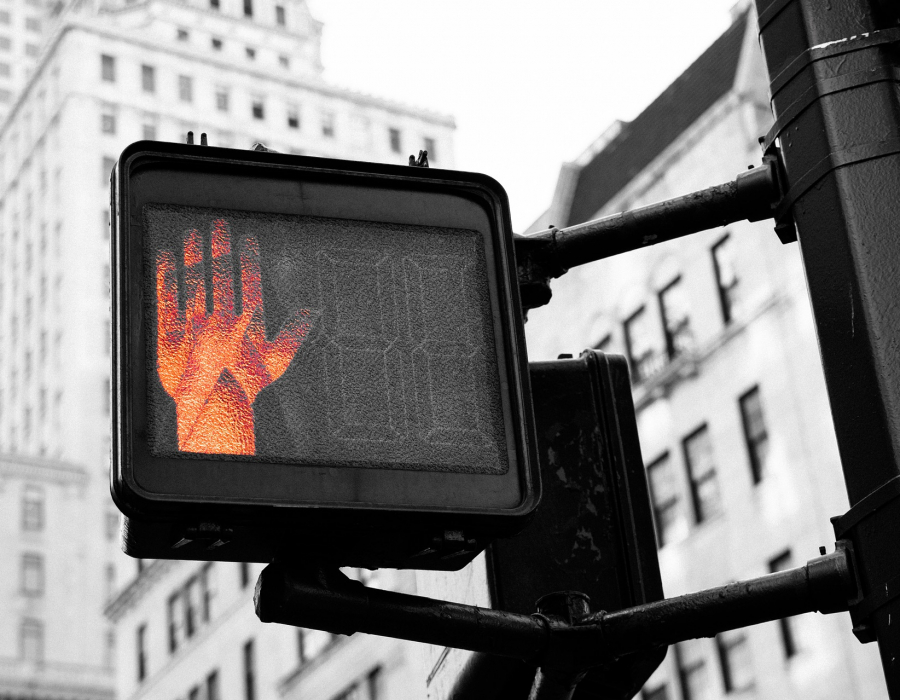In August 2021, AAUW contracted with the public opinion research firm Ipsos to poll women in New York City about how they fared economically during the pandemic. Women—including many women earning middle-class incomes—report that they were in a financially precarious position well before the pandemic pushed them over the edge. While those living in New York City and other high-cost cities face some unique challenges, their experiences before and after the pandemic provide a window into the larger national issue of how quickly all women can fall into financial hardship. These findings underscore the need for a full range of programs, policies and services to help women thrive in the good times and survive the bad.
AAUW Survey:
NYC Women and the Pandemic (2021)
Women Were Already Feeling Economically Pinched. Then the Pandemic Hit.

Women In New York City Say They Feel Financially Insecure
Almost two years into the COVID-19 pandemic, women in New York City are in a precarious position. Nearly a third (31%) report that their income is insufficient to meet their basic needs, including housing, health care, food, utilities, transportation or child care. The situation is bad for all women but much worse for women of color: 22% of white women reported that their income did not cover their basic needs, compared to 37% of Latinas.
The picture gets worse when you look beyond basic necessities to consider women’s broader economic vulnerability. Strikingly, 49% of women do not feel financially secure, 48% do not feel comfortable when thinking about their current financial situation, and 53% report that their income is insufficient to secure the lifestyle they want.
Did the Pandemic Put Women in This Position?
There’s no denying that the economic collapse hurt women’s finances. In New York, by May 2020, almost twice as many women as men had dropped out of the labor force. By June 2020, 1 in 5 women in New York City were unemployed. And by August 2021, 38% of the women we surveyed reported that they had lost some or all of their income during the pandemic. Due to devastating job losses in low-paying job sectors like retail, hospitality and child care, women in lower-income households were especially likely to lose money.
Yet the data make it clear that women’s financial difficulties predate the pandemic. Of the 31% of women whose income does not meet their basic needs, just under half (45%) had lost income during the pandemic, while just over half (55%) hadn’t. This drives home a critical point: Women were struggling to make ends meet long before March 2020. If a global health crisis had not devastated their finances, a job loss, a medical issue or an unexpected expense easily could have had the same result.
How Women In New York City Are Using Existing Support Systems
Despite their best efforts, women are in a precarious position. But there are some support systems that can make a real difference, and the ways women use them shed light on how they can be expanded. These include comprehensive unemployment insurance, accessible paid leave for all and student debt relief.
Unemployment insurance
Unemployment insurance has provided a crucial lifeline for women. Our research found that, before the pandemic, 1 in 10 women in New York City needed unemployment insurance. During the pandemic, nearly 1 in 5 did. But this story is bigger than the pandemic. Over one quarter (29%) of women in New York City reported living in a sufficiently vulnerable position as to require unemployment insurance at some point in their lives.
Paid family and medical leave
Paid family and medical leave allows women to care for their families without forfeiting their livelihoods—yet often, only women in higher-paying jobs have access to this critical benefit. Women making less than the median salary were far less likely to have taken either paid or unpaid time off work since the pandemic began. Lower-income women with young children were also more likely to quit their jobs during the pandemic: 18% of women making less than the median income quit their jobs due to lack of child care, compared to 3% of women making more than the median. Having access to sufficient paid family and medical leave could have alleviated this burden and bridged an important gap.
Student Debt
Our survey reveals the real impact student debt has on women from all walks of life. According to our findings, 18% of women in New York City hold student debt, owing a median of $17,500. Importantly, this is not just a young woman’s burden: Over 40% of those with student debt are over the age of 38. That means that many women are trying to find room in their budget for student loan repayments on top of child-care costs—not to mention saving to buy a home or setting aside money for their children’s college educations.

Policy Responses to Help Women Survive the Bad Times and Thrive In the Good
The pandemic made clear what women already knew: Too many women are living one crisis away from disaster. While this survey focused on women in New York City, The findings corroborate several national trends. To recover from the pandemic and economic downturn, not to mention thrive in the new normal and survive future setbacks, women across the country need expanded unemployment insurance, paid family and medical leave and student debt relief.
Expand Unemployment Insurance.
Despite both the necessity and success of expanded unemployment insurance, Congress failed to renew these benefits. Congress should make this a priority by ensuring coverage for every category of worker, including part-time workers, as well as those who face job loss or a reduction in hours. Congress can also lower or eliminate the earnings threshold to increase the number of workers covered by unemployment insurance.
Establish Broadly Accessible Paid Leave Programs.
In addition to state-specific policies, policy makers must take action at the federal level. The United States remains the only wealthy nation without paid leave. Enacting a well-funded and accessible program would enable more workers to get the time off that they need.
Provide Meaningful Debt Relief.
Regardless of approach, any plan must be intentional and equitable. Forgiveness should extend to all borrowers, without regard to income, default status, repayment plan, industry sector or institution attended. This will ensure that the neediest borrowers, including low-income and low-wealth individuals, are not inadvertently excluded.
Take Action
There are lots of ways to get involved with AAUW’s work to advance gender equity. Together, we can make a difference in the lives of women and girls.
Sign up for news & updates
Stay connected with AAUW and join our mission to advance gender equity. Sign up for our updates to receive the latest news, events, and opportunities to make an impact in the lives of women and girls.
If you prefer, text “AAUW” to 21333 to get AAUW action alerts via text.

